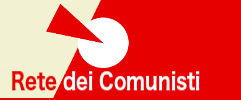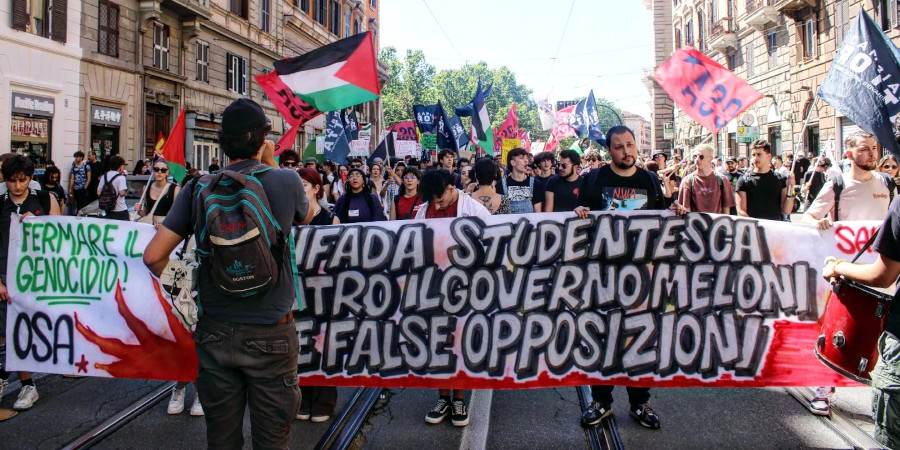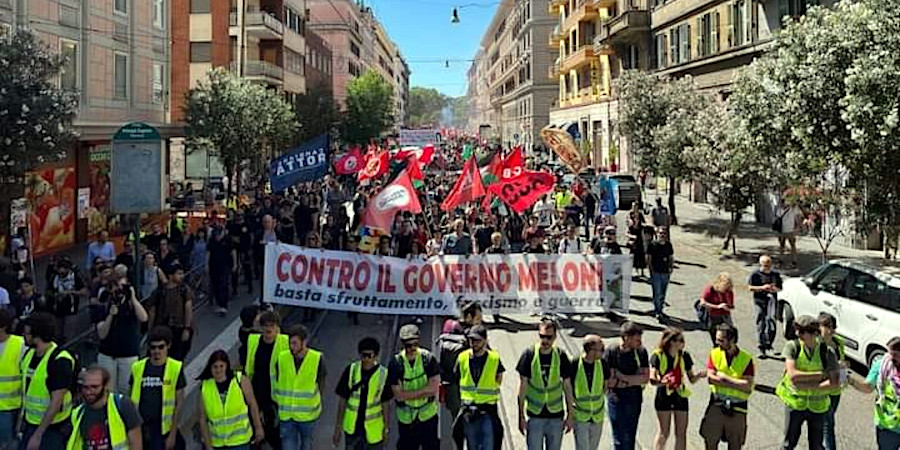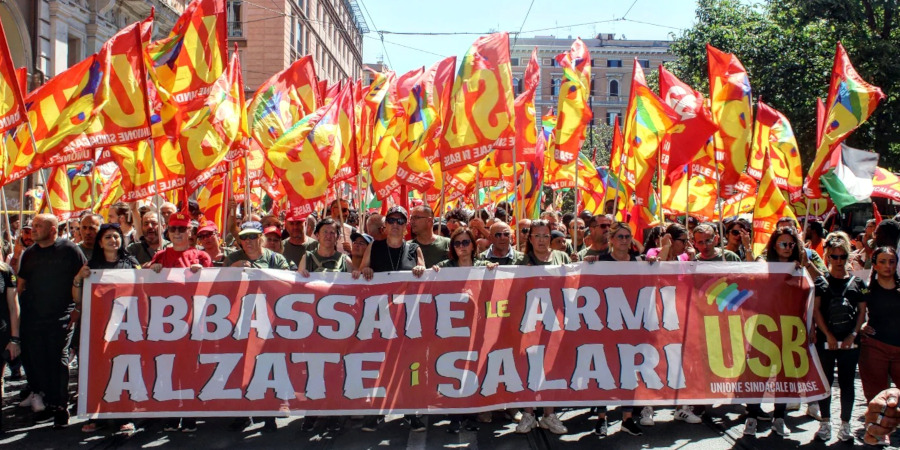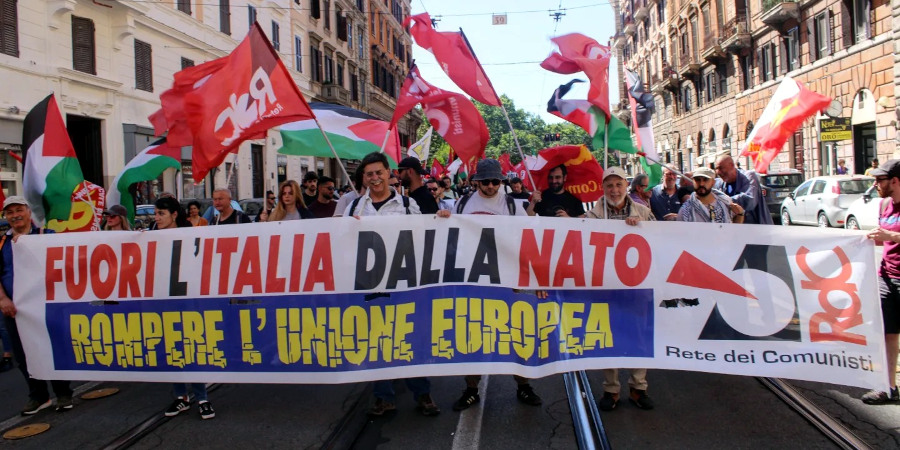| english | español | français | italiano |
Report from the OSA and Cambiare Rotta Forum
Rete dei Comunisti in International Bulletin July 2024
On 18 and 19 May, the national Forum of Cambiare Rotta and OSA took place in Rome, a two-day discussion with intellectuals, academics, political and social realities on the need to imagine an all-round alternative for the world of public education in the face of the rubble of the neoliberal model of school, university and research. An appointment that, in the wake of the revival of the university movement through the academic boycott of Israel, demonstrated the ability of the youth structures of the Rete dei Comunisti to have an adequate reading of the current historical phase and a possibility of hegemony over broader sectors of society.
First the battle against the MAECI ban and then the broadening of the struggle to the demand to break all relations between the universities and the war industry brought out a transversal and heterogeneous dissent within the universities against western policies of war and support for the state of Israel. Although timid, the results obtained in the universities have allowed Cambiare Rotta to grow and consolidate its strength in the country’s main universities and to gather support even from workers, teachers and researchers (an example of this is the strike called by USB Università e Ricerca and the students on 9 April), hinting at the possibility of expansion beyond the confines of the ‘antagonist’ world of youth and universities.
In the face of the attacks by the press, politics and university institutions on protesting students, defined as “extremists manoeuvred by anarchists” and/or as a minority of “intolerants”, the main objective of the forum was to publicly present a sort of identity card for Cambiare Rotta and OSA and to prevent repressive attacks on our youth structure through the involvement of more or less prominent personalities from the intellectual and democratic world (Tomaso Montanari, Anna Falcone, Giulio Marcon, Christian Raimo, etc.). The emergence in the country’s public debate and in the media not only of youth protagonism but, at last, of Cambiare Rotta as a communist vanguard in the student movement (as had happened two years ago with OSA during the wave of school occupations in Rome) is certainly a positive fact, we could not run the risk of being trapped in a misleading media narrative that wanted to relegate us on the one hand to the vertiginous element of the academic boycott and, on the other, to the veils of the police headquarters and the police reported in the newspapers in an uncritical and transversal manner.
The theses presented at the Forum started from the Rete dei Comunisti’s analysis of the relationship between the tendency towards corporatisation and elitistisation of public education in our country and in Europe, the crisis of the capitalist mode of production and the crisis of hegemony of the Euro-Atlantic bloc, a starting point that finds continuous confirmation in reality and that reinforces the approach on which we have built the mass intervention of Cambiare Rotta and OSA: for us, schools and universities are battlefields of class clash, terrains on which political, cultural and ideological conflict becomes central, especially for a generation in crisis of prospects.
In our country, young people now experience in an increasingly concrete and perceptible manner the contradiction between expectations and reality, a contradiction that becomes politicised and makes a political proposal of total rupture with the existing more ‘palatable’. The pandemic, the war, the social and ecological crisis are bringing out a present made of rubble with no apparent way out for an entire generation that can no longer find any possibility of material and cultural emancipation even in the normal school and academic paths, now marked by ruthless class selection and unbridgeable territorial inequalities. The crisis of perspectives makes the places of education crucial points of development of political and social contradictions: the western capitalist system and its ideological corollaries transmitted through schools and universities (individualism, competition, ideology of merit, superiority of western values) are winning but no longer convince the younger generations. The challenge that opens up for Cambiare Rotta and OSA is clear: transform the places of public education from rings of transmission of an ideological, cultural and labour subordination to the dominant model into places of conflict, or rather, of possible conflict, exploiting representation as a terrain of struggle, using the battle for internal democracy in schools and universities as an element of broadening consensus around our watchwords, representing a platform of general alternative to the current model of education, as a further building block to build our credibility and strength (as well as reason).
